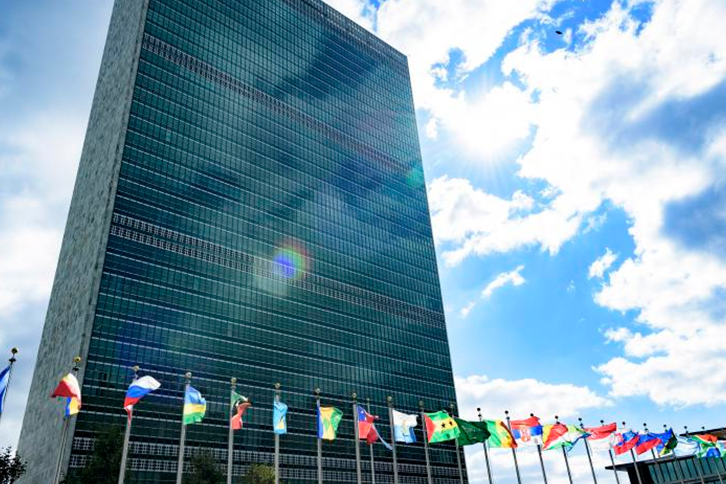Press releases
-
20/01/2023Mild weather has saved Europe this winter. Here’s what we must do to avoid future energy crises Mild winter weather in Europe may have given skiers a challenging time on the slopes, but the rest of the continent is breathing a sigh of relief. Except for a cold snap in December, most of Europe has enjoyed unseasonably high temperatures during this winter. And with Spring now in sight, we may well avoid an energy crisis that could have created severe disruptions for industries and millions of households across Europe. Over the last months, Europe has taken measures to modulate consumption, fill gas storage facilities, and maximize coordination. However, a harsh winter would have posed a significant challenge for everyone. In recognizing that, we should be making a concerted effort in the early months of 2023 to make sure energy security is not left to chance next winter and in years to come. It would be foolish to continue to rely on the weather to bail out a European energy system overly dependent on foreign reserves of fossil fuels. Currently, close to 80% of the world’s energy needs are met by fossil fuels. If ever there was a time to change course and radically reshape how we produce and consume energy, it is now. The ongoing tragedy of the invasion of Ukraine is the latest in a series of wider crises that have oil and gas implications as a common factor. 2023 is the year to finally break the cycle, through sustained investment and innovation in clean energy generation and electricity networks. That’s why at Iberdrola we’ve set out five clear areas for action this year–five fundamentals for faster progress toward green energy security. Turbocharging the deployment of renewable energy Wind and solar farms are an increasingly common sight, but the work of decarbonizing power generation is far from over. Even the U.K., where huge progress has been made in the deployment of renewable energies in the last years, still relied on gas and coal for 40% to 50% of its power generation mix in 2022. One of the biggest barriers to adding more renewables to the energy mix remains planning and permitting. Up until now, too many countries have announced renewable energy targets and ambitions without considering the broader context. We need more than rhetoric. We need the mechanisms to deliver renewables, which must be embedded and prioritized in planning policies and environmental permitting processes. More renewable energy generation is needed, but if the power grids that carry this clean energy aren’t up to scratch then the investment is pointless. We need sustained, well-planned investment in these networks. Modernizing power grids Globally, renewable energy generation will increase five-fold by 2040. Levels of electricity demand will also surge through greater use of electric cars and lowcarbon heating. In the U.S. alone, the electric grid will need to expand by at least 60% by 2030. Based on historical developments, this represents a century’s worth of work to be completed in less than a decade. Power grids are the backbone for the delivery of electric heat and transport–the glue that holds our energy system together. Again, planning and permitting is a major culprits in the lag to date. Regulators that oversee energy networks across the globe are increasingly recognizing the need to be more agile, more farsighted, and more willing to embrace “no regrets” investment–but there is still room for improvement. Green hydrogen This fuel, crucial to decarbonizing key parts of the heavy industry and transport sectors, has been a hot topic of conversation. Now is the time for meaningful action to scale up the deployment of hydrogen produced from renewable energy–the only truly sustainable type (and increasingly competitive compared to blue or grey hydrogen, which are produced from fossil fuels). For green hydrogen to help sectors decarbonize (like ammonia or methanol production), it must be given a level playing field. Green hydrogen is currently more expensive to produce (from renewable energy) than grey hydrogen (from fossil fuels). However, grey hydrogen comes at the cost of high carbon emissions and keeps us reliant on fossil fuels. Innovation The importance of innovation at scale to drive the optimal deployment of renewables, networks, electric vehicles, and energy storage systems cannot be overstated. At Iberdrola, we recently published our plans to double spending on innovation by 2030. Encouragingly, the International Energy Agency recently said that global government energy research and development spending was 5% higher in 2021 than it was in 2020. This is still not enough. Companies and governments need to continue to be brave, despite a harsher recessionary environment and tightening investment conditions. Finally, we need to keep our eyes on the long-term prize of decarbonization. 2022 was characterized by short-term, reactive, and often unpredictable government interventions in the energy market: confusingly constructed windfall taxes, cliff-edge price support schemes, and reversions to old, polluting technologies at the eleventh hour. 2023 needs to be different. It is the year to show leadership, be decisive, and set us all on a sustainable path out of a crisis caused by overdependence on fossil fuels. To protect citizens and our economies in future years, we must trust our better judgment, rather than depend on luck. * This article originally appeared on Fortune.com READ MORE
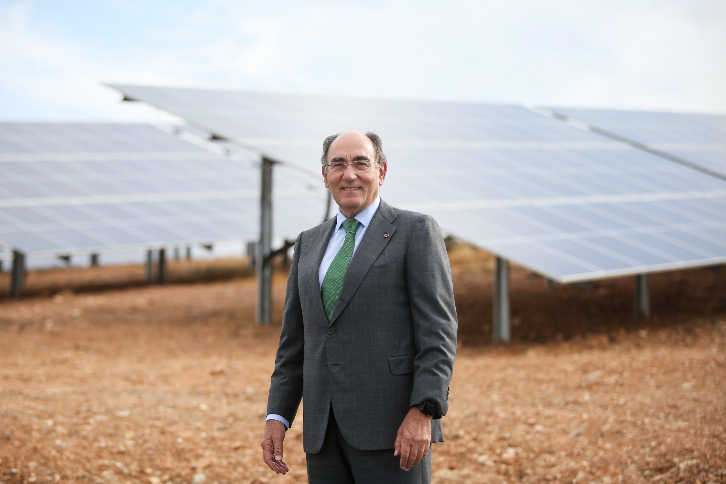
-
19/01/2023EnergyLOOP to install its innovative blade recycling plant in Spain with the support of PERSEO EnergyLOOP, a company promoted by Iberdrola, through its PERSEO programme , and FCC Ámbito, a subsidiary of FCC Servicios Medio Ambiente, will build its innovative wind turbine blade recycling plant in Spain in the municipality of Cortes, Navarre. La Ribera Navarra will thus be the place chosen to lead the recycling of wind farm components , one of the biggest challenges in the medium and long term for the sector. This initiative will also contribute to the energy transition and boost the circular economy in Spain. This is a pioneering facility in the recycling of wind turbine blades, mainly made up of composites (glass and carbon fibres and resins), for the recovery of these materials as secondary raw materials in different sectors such as the energy, aerospace, automotive, textile, chemical and construction industries. The plant's location is strategic due to its proximity to some of the country's leading wind farms and its good communication with other regions with abundant wind energy facilities, and to the support of the Government of Navarre and the public company Sodena, which have demonstrated their interest in this strategic activity that positions the region as a benchmark in the renewable energy sector. Construction is scheduled to start in autumn 2023 and the plant is expected to be operational in the course of 2024. The plant will be the first industrial-scale plant in Europe and will place Spain at the technological forefront of this industry. It will also contribute to the creation of an innovative and dynamic value chain. To this end, EnergyLOOP expects to create around 100 direct and indirect jobs over the decade and plans to invest around €10 million in the facility. For the development of its industrial commitment, EnergyLOOP has appointed Luis Sanz Jiménez, who has extensive experience in the recycling industry, as Managing Director of the company. In addition, in his long professional career, Luis Sanz Jiménez has led ambitious and innovative industrial projects for the recovery of materials and their incorporation into the market. The project has the support of the Government of Navarre, as it is a strategic activity that positions the region at the forefront of the renewable energy sector by introducing technological innovation and circularity components and is aligned with regional smart specialisation. In its commitment to the promotion and competitiveness of renewable energies, the Government of Navarre, through Sodena, has worked discreetly on the location of the first plant of this activity in the region, in an industrial estate owned by the also public company Nasuvinsa. The Government of Navarre's S4 smart specialisation strategy incorporates the circular economy by focusing efforts and bringing together public and private actors under the umbrella of Navarra Zirkular, with the aim of facilitating the ecological transition in companies located in the region. The Spanish wind industry - as a world leader with more than 28 GW of installed capacity - will face the need to recycle or reuse significant quantities of wind turbines before other countries. It is estimated that in Europe in 2030, around 5,700 wind turbines will be dismantled per year, coming from the repowering of wind farms or from facilities reaching the end of their useful life. In this context, EnergyLOOP will contribute to the transformation of the wind energy sector into a true circular economy by investing in integrated blade recycling solutions. This initiative will also improve its competitiveness and sustainability through the research and implementation of new recycling technologies, which will make it possible to absorb the increasing amounts of waste and adopt increasingly efficient solutions. The project will act in the different stages that enable the circularity of wind turbine blades, including on-site pre-treatment and conditioning, waste transport logistics, recycling technologies and the marketing of recycled products. Collaboration agreements with leading companies in their sectors The initiative undertaken by Iberdrola and FCC Ámbito has the support of Siemens Gamesa, which, as a global leader in the manufacture and maintenance of wind farms, will play a key role in this project, both because of its knowledge and experience in blade recycling and because of its penetration in Spain, with 53% of all the wind farms installed in the country. In the same vein, the company GDES Wind, with extensive experience in the maintenance of wind turbine blades, collaborates with EnergyLOOP by providing its technical support and know-how, as part of its commitment to the circular economy. EnergyLOOP's activity reinforces the circular economy strategies of FCC Ámbito and Iberdrola, which see this production and consumption model as a key lever for the energy transition. They will therefore seek to develop equally cutting-edge recycling solutions for other components of renewable facilities, such as photovoltaic solar panels or batteries, as the needs of these markets so require. With this approach, the new company will seek to establish the necessary alliances for the effective valorisation of waste, extending the positive impact of the initiative to other actors along the entire value chain. It will also contribute to the research and development necessary for the effective circularity of these materials. Aligned with FCC Environment's Sustainability Strategy 2050 FCC Ámbito contributes its extensive experience in the recycling and marketing of secondary raw materials to the definition of operational processes in the development of EnergyLOOP projects. The incorporation of new technologies in this type of project will allow FCC Ámbito to consolidate and position itself as a key player in the country's circular economy processes, a fundamental pillar of FCC Environment's 2050 Sustainability Strategy. This Sustainability Strategy consists of a 30-year business development roadmap that integrates very demanding objectives and commitments of high added value for the company and society as a whole, and which are grouped into four areas of action: environmental, social, excellence and good governance. The circular economy, at the core of the Iberdrola Group's sustainable business model EnergyLOOP responds to Iberdrola's commitment to a sustainable energy model and is part of its PERSEO Venture Builder programme to promote the development of innovative industrial companies working in new areas of electrification and in sectors that are difficult to decarbonise. Iberdrola defines its circular economy strategy as a process that affects its entire value chain, both its own production processes and those of its suppliers and customers. The group prioritises the contracting of companies with environmental management systems and, together with its suppliers, promotes eco-design, the analysis of the life cycle of products, and the use of materials with a low environmental impact. The company also promotes the circular economy by reducing the use of natural resources through its commitment to decarbonisation and electrification, and the more sustainable use of natural resources by promoting the use of more efficient and cleaner technologies and processes. It also fosters research to develop solutions for the use of waste and promotes responsible consumption through environmental awareness programmes. In 2017, Iberdrola joined the Pact for a Circular Economy: The commitment of economic and social agents 2018-2020, which the Spanish Government signed with the European Commission within the framework of the European Strategy for Growth 2020 and the so-called Roadmap to a resource-efficient Europe. The Pact, which was signed by public and private entities, seeks to involve the main economic and social agents in Spain in the transition towards a new economic model. PERSEO Iberdrola Ventures, 15 years innovating with start-ups and new business models Since its creation in 2008, PERSEO has invested €100 million in start-ups that develop innovative technologies and business models, focusing on those that improve the sustainability of the energy sector through further electrification and decarbonisation of the economy. The programme has focused its activities on analysing business opportunities and technological collaboration with start-ups and emerging companies around the world, analysing 300 companies each year and creating an ecosystem of almost 7,500 entrepreneurial companies. This investment instrument currently holds a portfolio of eight companies. Through PERSEO, the Venture Builder programme was launched in 2020 with €40 million for the creation of new business models aimed at supporting electrification in sectors that are difficult to decarbonise and the development of circular economy solutions, among others. FCC Ámbito, a leading company in circular economy services FCC Ámbito is the subsidiary of FCC Servicios Medio Ambiente specialising in the integrated management of industrial and commercial waste, recovery of by-products and soil decontamination. As a whole, it has a total of 39 treatment centres in Spain and Portugal, with more than 67 processing lines that guarantee the functionality of the facilities. FCC Servicios Medio Ambiente is the FCC Group company that has been providing municipal services and integrated waste management for 120 years, serving more than 60 million people in 5,200 municipalities around the world. In 2021, the company managed 24 million tonnes of waste and produced nearly four million tonnes of secondary raw materials and fuel derived from waste. The company has more than 770 operational waste management facilities, of which nearly 200 are environmental complexes dedicated to waste treatment and recycling, including 11 waste-to-energy projects with a capacity of 3.2 million tonnes per year and 360 MW of non-fossil electricity. READ MORE
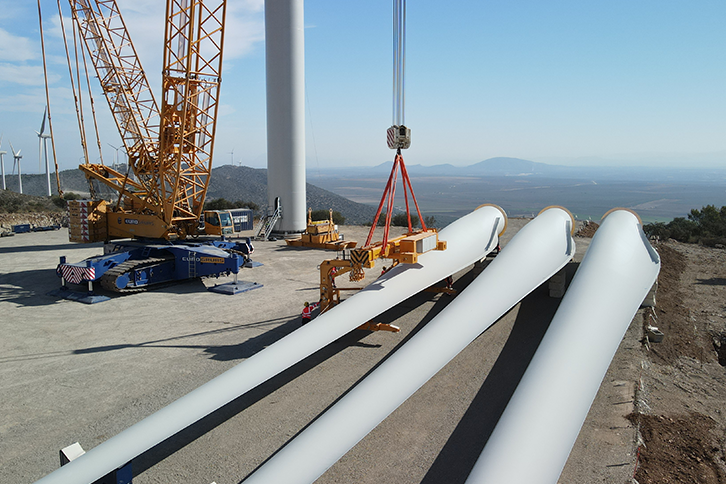
-
18/01/2023We issue €1 billion in green hybrid bond Iberdrola has surprised the market once again. The company has today set the terms and conditions of a new hybrid green bond , amounting to €1 billion, as reported to the National Securities Market Commission (CNMV). The volume of demand and the conditions of this transaction once again demonstrate the great confidence of the market and investors in the solidity and solvency of the energy company's business and growth plans. This transaction will serve to maintain the volume of hybrids alive, as advanced in its strategic plan presented on 9 November 2022, before the exercise of the option to repurchase the €1 billion in hybrid bonds already issued in 2017. Like the rest of Iberdrola's hybrids, the bond issued is perpetual, but has an option to repurchase at par after five and a half years. Subsequently, Iberdrola may repurchase the bond on an annual basis, coinciding with the coupon payment date. This has been fixed at 4.875%. These conditions are very advantageous as it is a subordinated instrument. The last issue of this type of debt by Iberdrola dates back to November 2021, with a current portfolio of 8.25 billion hybrids. The company has issued €1 billion, taking advantage of the good market conditions, limiting the risks of interest rate rises or a possible worsening in the credit markets. In this way, Iberdrola will continue to maintain its excellent financial health. In addition, 50% of the hybrid bonds count as equity, in accordance with the methodology of the main rating agencies, so this operation contributes to maintaining the group's credit ratings. The demand registered reflected the strong interest of fixed income investors in Iberdrola, reaching €7 billion, seven times the offer. This was possible thanks to the participation of around 360 qualified international investors, mainly from Europe and the United Kingdom. The proceeds will be used to refinance the similar transaction made in 2017 and will continue to finance the same assets that were financed with it ( onshore wind farms in the UK). READ MORE
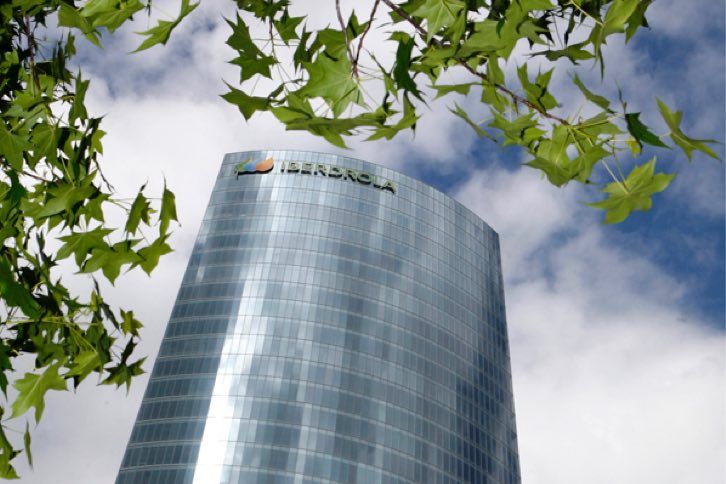
-
18/01/2023"The United States and Europe have to move forward together to decarbonise the economy," says Ignacio Galán on CNBC "I believe that the solution to achieve decarbonisation is not one against the other, but side by side. It is not Europe versus America or America versus Europe. Americans and Europeans have to move forward together to decarbonise the economy". Iberdrola's Chairman, Ignacio Galán, made this statement in a live interview with the economic TV channel CNBC on the occasion of the Davos 2023 Forum , in which he is participating. His response to the media asking him about Europe's apparent loss of leadership in the field of energy transition was clear. "I don't think Europe is lagging behind. Europe has been leading on energy transition and decarbonisation for many years. Now the US is moving [referring to the Biden Administration's Inflation Reduction Act], but Europe was already on that path. The point is that we have to adjust European legislation because others are also moving," he explained. "America is offering good and attractive legislation and now Europe has to adapt its legislation to remain as attractive as it was," the Iberdrola chairman said. Galán gave as an example of how fruitful collaborations can be the alliances that the company is fostering to promote the electrification of the economy and the development of renewables. Among other agreements, he mentioned the Iberdrola Group's agreement with Shell to promote the development of offshore wind power in Scotland, the agreement reached with BP to accelerate the deployment of charging infrastructures for electric vehicles, and the very recent agreement with Norges Bank to co-invest in renewable capacity in Spain. "It is not about competition, but about collaboration. Together we can go further and faster", he reiterated. Thus, he expressed a very encouraging view of the energy transition. "I am optimistic. Everyone is aware that we need to move faster and that we need clear, stable and predictable rules. This growing awareness of the need to speed up legislation, permits and investments will contribute significantly to decarbonisation. "The problem of external dependence on fossil fuels is not only a climate problem, but also a self-sufficiency problem. That is putting in everyone's mind that we need to accelerate the construction of renewables, the digitalisation of the grid and provide services based on full electrification." An awareness, he said, that will help promote investments in the energy transition. Galán once again advocated the need to electrify the economy and increase renewable technologies as a solution to this situation of energy dependence. "Around 80 % of today's energy comes from fossil fuels. Only 20 % is electricity. And almost half of that electricity comes from fossil fuels. In his opinion, the key is "how can we get that 20% of electricity to be produced entirely from renewables and how can we increase the share of renewables in the total energy mix". READ MORE
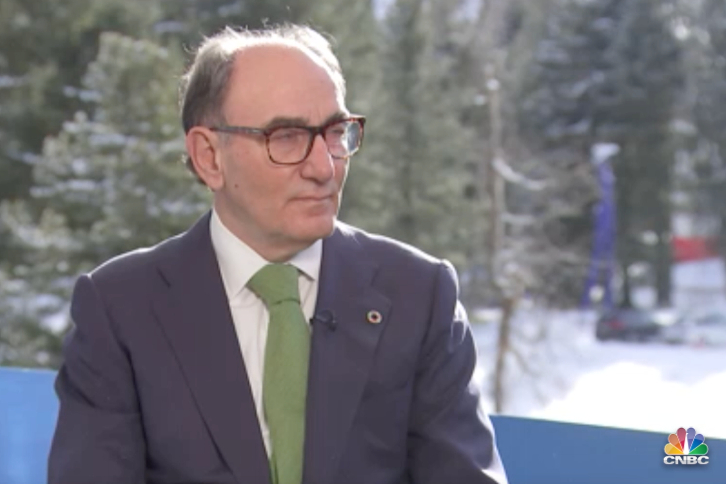
-
18/01/2023This year, once again, we have been chosen as one of the most sustainable companies by the Global 100 index Iberdrola has been selected as one of the most sustainable utilities worldwide, according to the Global 100 Most Sustainable Corporations in the World index , prepared annually by the publication Corporate Knights. The company headed by Ignacio Galán is also one of the top 25 companies in the world in this ranking. Corporate Knights is a media and investment research company trusted for its unrivalled track record in providing ESG (environmental, social and governance) information , objectives and analysis. It enables significant engagement with many of the world's most influential corporate, political and investment decision makers, becoming a brand synonymous with sustainability. Ranking in the Global 100 is a badge of honour for sustainability excellence and is proven to increase investor confidence. The Global 100 index is financially resilient, consistently outperforming the MSCI ACWI benchmark index since its inception almost seventeen years ago. In order to compile the ranking of the 100 most sustainable companies in the world, more than 8,000 listed companies with revenues of more than $1 billion were analysed, and those that have carbon, hinder climate policies and cause extreme deforestation with their activity were discarded. Once this selection has been made, Corporate Knights analyses indicators covering resource management, employees, financial management, revenue and green investments, and supplier performance. Iberdrola, in addition to belonging to the Global 100 index, is also present in the main international sustainability indices, including the Dow Jones Sustainability Index, MSCI, CDP, FTSE4Good, Sustainalytics, Bloomberg GEI, Euronext Vigeo Eiris indices, EcoVadis, etc. Leading in sustainability Iberdrola has incorporated the Sustainable Development Goals (SDGs) , defined by the United Nations for the 2030 horizon, into its business strategy and sustainability policy, and is a benchmark for its direct contribution to the global goals, highlighting its contributions in the field of energy and climate change. The company focuses its efforts on the provision of affordable and clean energy (goal 7) and climate action (goal 13), while contributing directly to ensuring clean water and sanitation (goal 6), has increased its investment in R&D&I activities (goal 9), promotes respect for the life of terrestrial ecosystems (goal 15) and works to build partnerships to achieve the goals (goal 17). READ MORE
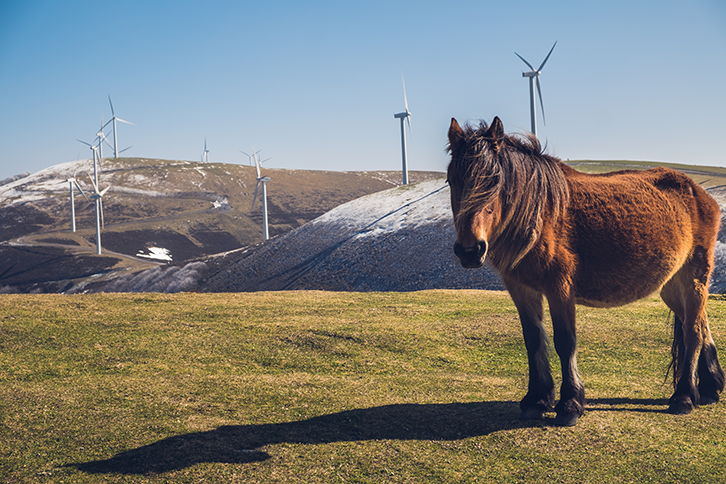
-
17/01/2023We form an alliance with Norges Bank Investment Management to invest in 1,265 MW of new renewables capacity in Spain Iberdrola has signed an alliance with Norway's sovereign wealth fund, managed by Norges Bank Investment Management, to invest in 1,265 MW of new renewables capacity in Spain. Of the total capacity, 20% will come from wind and 80% from solar PV. Iberdrola will have a majority stake of 51% in the assets. Both companies are joining forces to accelerate decarbonization in Spain initially and the agreement could be extended to other countries in the future. According to the terms of the agreement, the valuation of 100% of the assets in the portfolio amounts to approximately €1.2 billion. Iberdrola will control and manage the assets, providing operations and maintenance services, as well as other corporate services. Of the 1.265 MW total capacity, currently 137 MW are operational in Castilla-La Mancha and Aragón. The rest of the projects are in development in Andalusia (358 MW), Extremadura (343 MW), Aragón (175 MW), Castilla y León (102 MW), Madrid (55 MW), Murcia (50 MW) and Castilla La Marcha (45 MW). In total, the renewable energy portfolio will have the capacity to meet the electricity demands of more than 700,000 homes each year. The perfect partner to co-invest Norges Bank Investment Management, who manages Norway's sovereign wealth fund, has around €1.4 trillion of assets under management and is the largest single investor in global equities, with and stakes in more than 9,000 companies. It owns on average 1.4% of all listed companies in the world, and 2.5% of all listed companies in Europe. Norges Bank Investment Management is also one of Iberdrola´s main shareholders, retaining a stake of more than 3% for over seven years. Building on this longstanding relationship, Norges Bank Investment Management has taken the decision to make its first direct investment in renewables assets in Spain, forming an alliance with the leading European electricity company by capitalization. The alliance between Iberdrola and Norges Bank Investment Management joins two preferred partners in a relationship that could be extended to additional renewable energy opportunities in further markets. Partnerships to grow In the last three years, Iberdrola has signed several long-term alliances to promote the decarbonization of the economy: * Recently, Iberdrola and bp reached an agreement to accelerate the deployment of EV charging infrastructure and the production of green hydrogen in Spain and Portugal. * In addition, a few months ago. Iberdrola signed an alliance with Energy Infrastructure Partners to co-invest in the Wikinger offshore wind farm and strengthen its offshore wind portfolio. * In 2021, Iberdrola also incorporated Mapfre as a partner in an agreement that includes, among other aspects, co-investment in a portfolio of wind assets of 295 MW. * Before the pandemic, GIG joined Iberdrola in its East Anglia One offshore wind farm with a 40% project stake. Iberdrola retained a majority stake of 60%. Iberdrola, commitment to Spain Iberdrola has reaffirmed its commitment to the energy transition in Spain as a leader in renewables, with 19,500 MW in operation at the end of the third quarter of 2022, as well as significant networks and storage assets. The company also plans to invest a further €6 billion in Spain until 2025, adding to the 85,000 jobs it currently supports across its value chain. At a global level, Iberdrola's assets reached a value of €170 billion in September. READ MORE
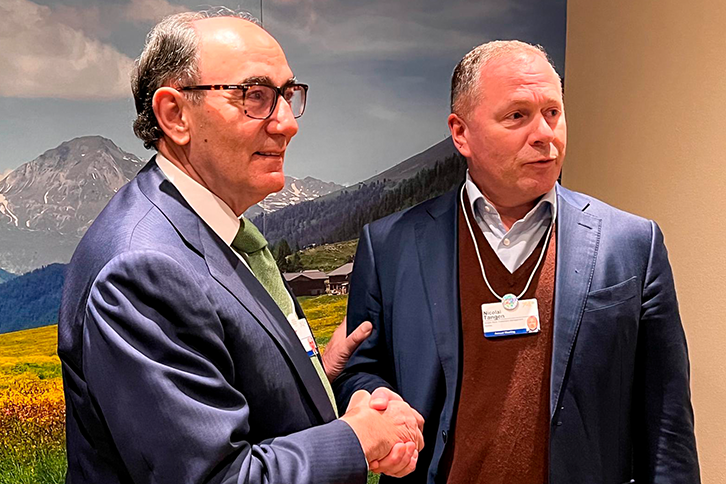
-
16/01/2023Iberdrola launches ‘Electric, together’ Europe`s largest electricity company, Iberdrola, has today (16h January) launched a new report titled ‘Electric, Together’. The five-point manifesto is a call to action for global policymakers, companies in the energy and industrial sectors and other stakeholders on the steps that need to be taken in 2023 to break the cycle of crises driven by oil and gas, and to shift the balance to delivering green energy security as quickly as possible. The manifesto, targeting leaders attending the World Economic Forum in Davos this week, unpicks the key challenges that remain unsolved in the energy transition, setting out the best ways to move forward at speed. Iberdrola is investing a total of €47 billion for the three years to 2025, continuing to transform the energy system for the better in the U.S., Europe, the UK, Latin America and Asia Pacific. The five fundamentals for faster progress towards green energy security in 2023, as highlighted in Iberdrola’s manifesto, include: 1. Accelerating planning and ambition for electricity grid infrastructure to deliver the transition to a green economy: Electricity networks will have to increase the amount of renewable generation they connect five- or six-fold by 2040 to achieve Net Zero goals. According to McKinsey, in the U.S. alone, the electricity grid will need to expand by at least 60% by 2030. Or, put another way, a century's worth of improvements needs to be completed in less than a decade. 2. Turbo-charging the deployment of renewable generation projects: Long and complex permitting procedures are stalling the deployment of renewables projects and progress towards climate goals. This needs to be resolved. According to the IEA , renewable generation needs to increase from almost 29% of the generation mix in 2021 to more than 60% by 2030. 3. Scaling up green hydrogen as a solution for hard-to-decarbonise industries: Specific areas of the heavy industry and heavy transport sectors will rely on green hydrogen for their transition, and concrete policies are required to kick-start this industry. Progress has been too slow. According to the IEA , to stay on track with Net Zero ambitions, low-emission hydrogen production needs to increase from nearly zero today to more than half of global hydrogen production by 2030, around 95 Mt, 4. Increasing ambition on innovation to drive climate solutions: Innovation at scale is required to facilitate the optimal deployment of renewables, electric vehicles and energy storage systems. The positive global trends -the IEA states that global government energy R&D and demonstration spending was 5% higher in 2021 than the previous year- should be maximised, and private sector companies can be more aligned with governments. For this reason, Iberdrola plans to double its spending on innovation by 2030. 5. Keeping our eyes on the long-term prize of decarbonisation: 2022 was marked by a range of government interventions in energy markets, which were in some cases reactive, short-term or even arbitrary in nature. 2023 provides governments and regulatory authorities across the world with the opportunity to show leadership and decisiveness in backing sustained green investments so that we can emerge from the crisis in better shape. Ignacio Galán, Iberdrola's Executive Chairman, comments: “If we are to learn one lesson from 2022, it is the compelling need to work together to deliver electrification quickly for a more secure, clean and competitive energy system. The hard fact is that the world still relies on fossil fuels for close to 80% of its energy needs, exposing us all to unnecessarily high levels of disruption, inflation and pollution. Every day the world fails to act, its citizens and businesses remain trapped by international energy volatility and the window to tackle climate change closes. “It is both troubling and ironic that only unseasonable winter temperatures triggered by climate change have saved large parts of the northern hemisphere from much more severe threats to energy security and affordability this winter. We can and must do much better in 2023, and work quickly to deliver green energy security – rather than depending on good luck and mild weather. “For Iberdrola, the answers are clear. A crisis caused by gas will only be solved by sustained investment and innovation in green generation, networks and energy storage. All the solutions already exist. There are no technological barriers to the transition. However, we still need policymakers to show more urgency and ambition, working in tandem with regulators, to overcome the challenges that persist.” A copy of the full manifesto can be downloaded on Iberdrola’s website. READ MORE
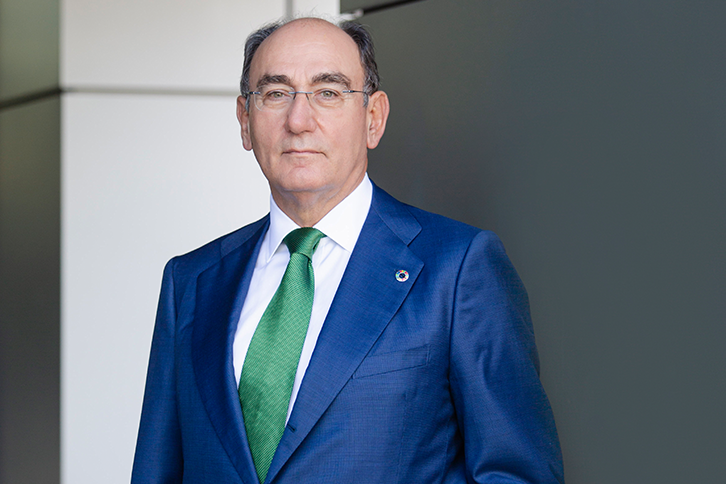
-
16/01/2023We are pioneers with our Human Rights report in "responsibility and respect" for people Iberdrola is committed to Human Rights. This is evidenced in its first Human Rights Report (HRR), the purpose of which is to share with society the measures for monitoring and respecting its activities and business relations. The company thus strengthens its historical commitment to respect for human rights, which is inextricably linked to global sustainable development , and to the sustainability and resilience of the company. It also becomes a pioneer in the publication of this type of report, anticipating future regulatory requirements such as the European Directive on Corporate Sustainability Due Diligence. HR, and especially the role that companies play in their compliance, have become a very relevant issue in the social agenda, in the financial community, in regulators and in other interest groups. Aware of this circumstance, and guided by its commitment to transparency, Iberdrola has prepared this first report based on the United Nations Guiding Principles on Business and Human Rights (UNGPs). The document covers the various aspects of the company's policy in this area and its due diligence process, as well as numerous cases and good practices. Iberdrola's fundamental objective in this area is to proactively manage human rights. The idea is to avoid risks both for the company and for the supply chain, local environments and communities, especially indigenous communities. The group has therefore progressively deployed specific due diligence measures consisting of identifying, preventing, mitigating and, where appropriate, redressing human rights impacts. In the words of Iberdrola's chairman, Ignacio S. Galán, "at the Iberdrola Group, we respect human rights with conviction and always act responsibly and with respect for people, the environment, and the communities in which we are present. We are aware that large companies have a very positive impact on society, but we also know that there are certain aspects of the performance of our value chain in which we must be very vigilant". As a result of the work carried out in this area to date, Iberdrola is in a position of leadership in the sector, endorsed by the Renewable Energy and Human Rights Index prepared by the Business and Human Rights Resource Centre for two consecutive years, and by the Dow Jones Sustainability Index, in which the company achieved the highest score in 2022. Iberdrola's Human Rights Report is available on the corporate website at the following link: https://www.iberdrola.com/documents/20125/1268294/Human-rights-report-2022.pdf READ MORE
